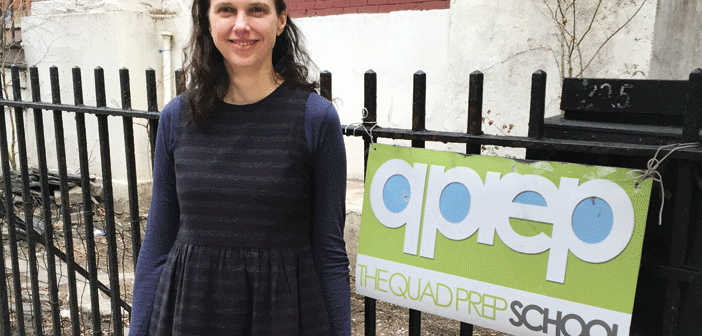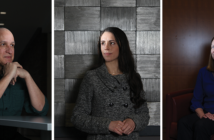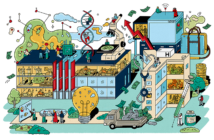Frustrated by the education system, an alumna founds a school for exceptional students.
Year after year, Kimberly Busi MD’97 watched in frustration as her son fell deeper down the rabbit hole. When he was 18 months old, she and her husband suspected that he might have some developmental challenges. By age 8, they knew he had Asperger syndrome and would be classified as a “twice-exceptional” student (gifted in one area but with special needs in another).
“While my son excelled academically, he was becoming increasingly anxious and sad about school,” Busi says. “His traditional school environment, despite its vigorous academic standards, had little understanding about how to provide the support he needed.”
In 2009, Busi took matters into her own hands. She left behind an academic appointment in psychiatry at New York University School of Medicine to organize a parents’ group and found and direct an after-school program and a 10-week summer camp for twice-gifted children. Her goal—to evolve the program into an alternative college preparatory school—was realized when the Quad Preparatory School opened its doors in September 2014 for students ages 10 to 14.
“My medical education at Brown emphasized thinking outside the box, and I leaned on that philosophy to reconstruct all the pieces that go into figuring out what school means,” Busi says.
She brought in other clinicians with twice-gifted educational experience to design individual, customized instruction. They came up with a plan in which half a student’s time is devoted to one-on-one training in four core academic areas, and the other half to collaborative projects in a group setting. “If you solely provide tutoring, your students will never learn the skills to work in a world where collaboration and social awareness are often required,” Busi says.
Located in a synagogue on the Lower East Side of Manhattan, the school is designed with flexible walls and a large, open, and well-lit area to facilitate movement and energy, as well as quieter space that’s available as needed. Cross-curricular inquiry projects and off-site trips build self-esteem and foster social interaction—areas generally neglected for special needs students in traditional school settings.
Busi and her supportive advisory board want to grow by eight to 10 students a year, find a permanent home, and expand to K-12. Staying solvent has become a complicated, never-ending challenge that ties into families receiving special needs financial assistance from the New York City Department of Education and state and federal agencies in accordance with the federal Individuals with Disabilities Education Act.
Despite the hard work that it will take to accommodate more students in what she calls “a vastly underserved population,” Busi takes comfort in knowing that her son, now age 14, looks forward to school every day. That he and so many of his classmates are meeting their potential has made her more fully appreciate one mantra she continually heard while she was at Brown: go out into the world and make it a better place.




